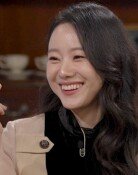[Opinion]Culture Terrorism
Former South Korean President Park Chung-hee, who arrived in Taiwan during his visit to Southeast Asian countries, had a summit meeting with former Taiwanese President Jiang Jieshi on February 15 1966. Jiang expressed his respect toward Korean independence activist Yoon Bong-gil known as Maeheon at the meeting. The leader called him a real hero who did things that the one million soldiers could not. The Taiwanese president gave his best regards to Yoons family and asked President Park to take care of them. The Korean president looked for Yoons family and paid great attention and took care of them.
On April 29 1968, President Park left his handwriting of Choong Eui Sa when he visited Yesan in Chungnam Province, the hometown of activist Yoon, to celebrate the construction of Choong Eui Sa, the monument of Yoons patriotism. Before the day, President Park participated in the ceremony of General Choong Mu-gongs birth held in Hyun Choong Sa in Asan. The president, who had blamed himself for graduating from Manchuria Military Officer School and joining leftist activities, showed extreme interest during his presidency in the business of independence activities against Japan during the colonial rule such as making Hyun Choong Sa a sacred place and establishing the commemoration museum of Yoo Gwan-soon.
A culture director (46) in a province broke into Choong Eui Sa that was designated as 229th historic site on March 1 and broke the plate maintaining Parks handwriting into three pieces and displayed them in front of the stairs of the House of the Nation. The person voluntarily went to a police station and was booked without detention on the charge of damage of public materials and buildings. It is the second time that plates maintaining the handwritings of President Park were scrapped after Sam Il Moon in Tapgol Park, Jongro-gu, Seoul in November 2001. It is fearful that some people considered these cases as a victory regardless of the preference to Park Chung-hee.
That is Culture terror. Those people may mistake private evaluation for national assessment. In any era, such people, so-called criminals of conviction, exist. However, it is worrisome that the political view of history may be breeding such a personal view on history after watching the controversy surrounding the chief of the Cultural Properties Administrations remark over replacing the plate of Gwang Hwa Moon.
Oh Myung-chul, Editorial writer, oscar@donga.com





![반찬통 착색 고민 끝…‘두부용기’ 버리지 말고 이렇게 쓰세요 [알쓸톡]](https://dimg.donga.com/c/138/175/90/1/wps/NEWS/IMAGE/2026/01/09/133126593.3.png)

